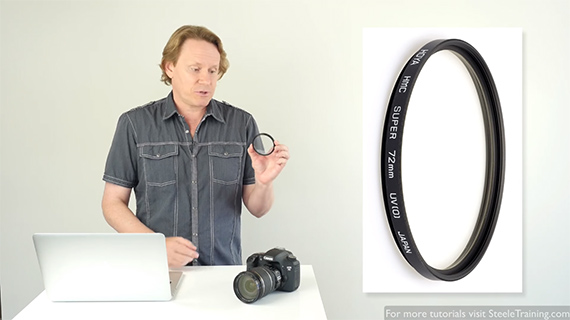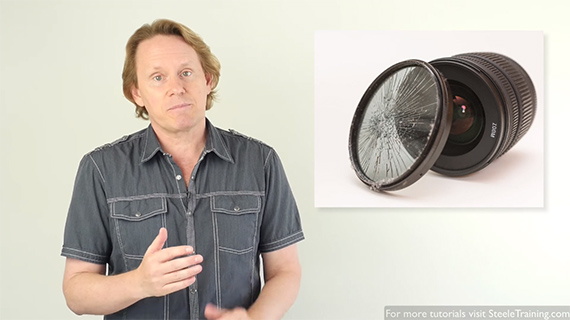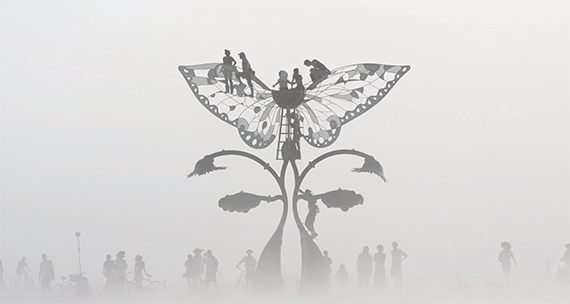The use of UV and clear filters is a hotly debated topic in photography. In the case of film photography, it’s absolutely imperative that you use a UV filter, because film is extremely sensitive to UV rays. But if you’re using a digital camera, is it so important? Phil Steele shares his insight:
The question seems to be whether you should get a lens filter for the sake of protecting the delicate front element of your lens. In that regard, either a clear filter or a UV filter will do a good job.

The bigger question, however, is quality. If you do choose to use a filter, you should get yourself one that’s of optically great quality. A quality filter is not just any piece of glass. It’s built with optically pure glass, which is very expensive. Plus, it has special coatings applied to it.
These special coatings suppress chromatic aberration as well as prevent UV light from affecting your images. The quality of the glass will also mean better prevention against scratches and dents—security for your expensive lens.
As such, between a UV and a clear filter, it doesn’t really matter which one you get, as long as the quality of the filter is good. The rule of thumb is to spend about 10 percent of the price of your lens on the filter that sits in front of it.

Arguments Against UV Filters
An argument against using a filter (clear or UV) is that your lens was not designed to work with another piece of glass sitting in front of it. A filter is likely to affect the performance of an optically superior lens.
Arguments for UV Filters
A high quality filter isn’t going to make much of a difference in the quality of images. But it will make a huge difference if your lens gets a knock where it is most vulnerable, potentially saving you from hundreds of dollars in losses.
But the strongest argument in favor of using a filter seems to be that over a period of time, as you keep using a lens and keep cleaning it, you’re going to give it micro-abrasions (scratches). As they get deeper and deeper over time, they will affect the quality of your images.

And not just scratches. If you’re an outdoor photographer doing landscape, street, or any other type of photography, you constantly expose your expensive lenses to chemicals or elements that can be potentially lethal for these delicate tools. Having a filter is like wearing protective goggles.
When You Don’t Need a Filter
If you already have a filter on your lens, there’s point of mounting another one. Stacking several pieces of glass unnecessarily puts the quality of your images at risk and possibly induces unwanted flares. Plus, if the stack is a bit too thick it might introduce some amount of vignetting in the corners. A filter is also undesirable when you’re shooting directly against the sun. This can cause lens flare.
The kind of photography that you do also determines whether you should use a filter. If you’re constantly shooting in dusty environments, or shooting in the midst of people, you need a filter. On the other hand, if you’re usually shooting in clean, pristine conditions, you probably don’t need a UV filter.
Sounds pretty straight forward, right? So why is there such a heated debate on this filter versus no filter topic?
Go to full article: UV Filter Pros and Cons for Photographers
What are your thoughts on this article? Join the discussion on Facebook
PictureCorrect subscribers can also learn more today with our #1 bestseller: The Photography Tutorial eBook
The post UV Filter Pros and Cons for Photographers appeared first on PictureCorrect.
from PictureCorrect https://ift.tt/2tHAcAn
via IFTTT






0 kommenttia:
Lähetä kommentti